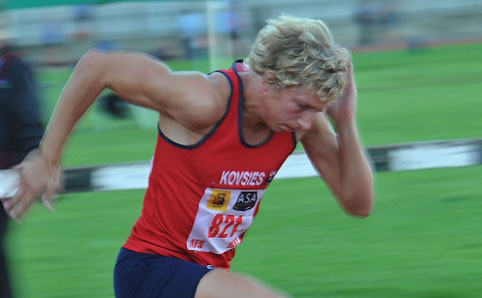|

|
|
PC Beneke
|
Once again, Thuso Mpuang, student at our university was a star at a student athletics meeting. He repeated his good performance of the South African Student Championships in April by winning the silver medal at the 200 m for men at the World Student Games in Shenzhen, China, in the good time of 20.59 seconds. He was also a member of the SA 4 x 100 m relay team, which won the gold medal at the meeting.
Another Kovsie athlete, PC Beneke, was a member of the SA Student team’s 4 x 400 m relay team, which won a bronze medal at the Student Games.
According to Sarina Cronjé from KovsieSport at the UFS, Kovsies can really be proud of these two athletes with their total of three medals at the World Student Championships.
Thuso is again on his way, this time to the World Senior Athletics Championships, where he is going to represent South Africa in the 200 m men’s, as well as the 4 x 100 m relay. The meeting is taking place in Daego, Korea, from 27 August to 4 September 2011.